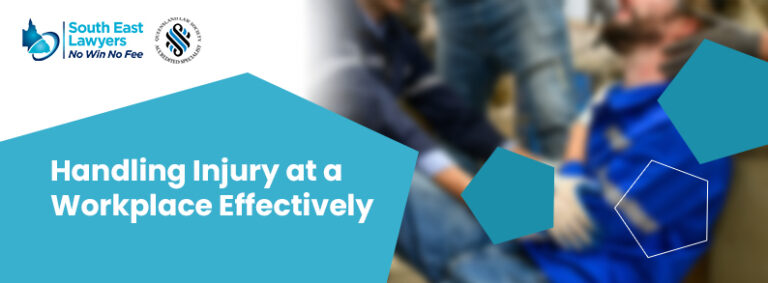While many of us are able to leave the days of bullying behind us, for many others, they experience bullying behaviours in their place of work. Workplace bullying is a concerning and pervasive issue that affects employees’ well-being, productivity, and overall job satisfaction.
In recent years, there has been a growing recognition of the negative impact of workplace bullying, prompting legal and regulatory changes aimed at protecting employees’ rights and ensuring a safe and respectful work environment.
If you’re being bullied at work and it is causing you distress, you may be wondering if you can be compensated for this. In this article, we’re going to discuss workplace bullying, including what is considered to be bullying and what you can do if you’re experiencing bullying in your workplace.
What is workplace bullying?
Workplace bullying refers to behaviours that are directed towards an employee or a group of employees, and this behaviour is unreasonable, repeated and creates a risk to their health and safety.
Bullying behaviours can be performed by anyone, including employers and fellow employees. A wide range of behaviour types can be considered to be bullying, including verbal, non-verbal, and physical acts that are aimed to cause humiliation, intimidation, and exclusion.
Workplace bullying can lead to severe emotional distress, mental health issues, decreased job satisfaction, and reduced productivity.
What are the different types of bullying?
Verbal bullying
This includes offensive language, derogatory remarks, and hurtful comments meant to belittle or demean the victim.
Physical bullying
Involves physical acts of aggression, such as pushing, shoving, or damaging personal property.
Psychological bullying
This form includes tactics like spreading malicious rumours, isolating the victim, and deliberately assigning excessive workloads.
Cyberbullying
With the rise of technology, bullying can extend to online platforms through offensive emails, messages, or social media posts.
When are you eligible for compensation for workplace bullying?
Compensation claims of any type can be complicated and dependent on a wide variety of unique factors. Some of the factors that could impact your eligibility for compensation for bullying include:
- Severity and relevance – the bullying behaviour must be severe enough to cause emotional distress or psychological harm, and it should be related to the victim’s work.
- Duration and pattern – a single isolated incident is less likely to be considered bullying. However, if the behaviour is persistent and repetitive, it may qualify.
- Employer’s responsibility – if the employer fails to address the bullying complaint or contributes to the hostile environment, they could be held liable for compensation.
- Health and safety risk – the bullying behaviour should pose a risk to the victim’s health and safety.
- Documentation and reporting – victims are advised to maintain a record of incidents, including dates, times, locations, and any witnesses. Reporting the incidents to a supervisor or HR department is crucial.
What is the process for seeking workplace bullying compensation?
Getting compensation for workplace bullying in Queensland involves several steps which may differ slightly depending on your situation. Here’s a general overview of these steps:
- Documentation of bullying – as bullying is usually a patterned and repeated behaviour, it’s important to keep record of any incidents where bullying behaviours have occurred. Include information like the dates, locations, people involved and the details of what actually happened.
- Inform your employer – bullying behaviours should be reported to your supervisor, manager, or HR department as per your workplace’s policies. Provide them with the details of the incidents and your concerns.
- Keep records of your reporting – document when and to whom you reported the bullying. If you do it in writing (email or letter), keep a copy. Your workplace has a duty of care to provide you with a safe working environment and this includes taking any reports of bullying seriously.
- Lodge a formal complaint – if the situation doesn’t improve after reporting, you may need to lodge a formal complaint with your employer (this process could differ by workplace).
- Seek external assistance – if the bullying persists or if your employer doesn’t adequately address your concerns, you can seek help from external bodies. We recommend seeking legal advice in this situation as we can often direct you to the right bodies and/or help with the process.
- Medical assessment – if you’ve suffered physical or psychological harm due to bullying, seek medical assessment and treatment. Your medical records can serve as evidence of the harm caused.
- Compensation Claim – if you’re seeking compensation for the harm you’ve suffered, your lawyer will help you file a claim.
What compensation can I seek for workplace bullying?
The amount of compensation you can seek for workplace bullying is dependent on your situation, however, you may be entitled to compensation for the pain and suffering you have experienced, medical costs related to the workplace bullying such as counselling costs, the loss of any income and any other expenses that are related to your workplace bullying injury.
What if I’m still employed at the workplace, can I make a claim for compensation?
Yes, you can make a claim for compensation for workplace bullying related injuries even if you still work at the same workplace that the behaviours occurred.
If you’re concerned about being terminated due to your claim, seek legal advice to ensure that you understand your options.
If I have left the workplace, can I still make a claim?
Yes, you do not need to be working at the workplace to be able to make a claim for workplace bullying compensation. You must be able to demonstrate that the bulling behaviours caused your injury, which is why keeping records of any incidents is extremely important.
If you left your job due to the bullying behaviours, we recommend seeking advice from an employment lawyer who can help you to understand the best course of action.
Is there a time limit for when I can make a claim for compensation due to workplace bullying?
Yes, there are time limits for making workplace bullying compensation claims and in Queensland this time period is usually 3 years from the date of the incident. However, we recommend seeking legal advice as certain factors could influence your situation. Get advice as soon as possible to ensure you are within the time limit and do not miss any important deadlines.
Has bullying at your workplace caused you psychological harm?
If you’ve experienced bullying at work and have suffered from stress and/psychological harm due to this, you could be eligible for compensation.
We understand that dealing with workplace bullying and stress can be overwhelming, which is why we’re here to help.
We’ll take the time to learn about your situation, provide you with accurate and relevant information to ensure you understand your options and we’ll fight for you.
Discuss your situation with us today by calling us on +61 7 5230 8091 or booking a consultation here.






